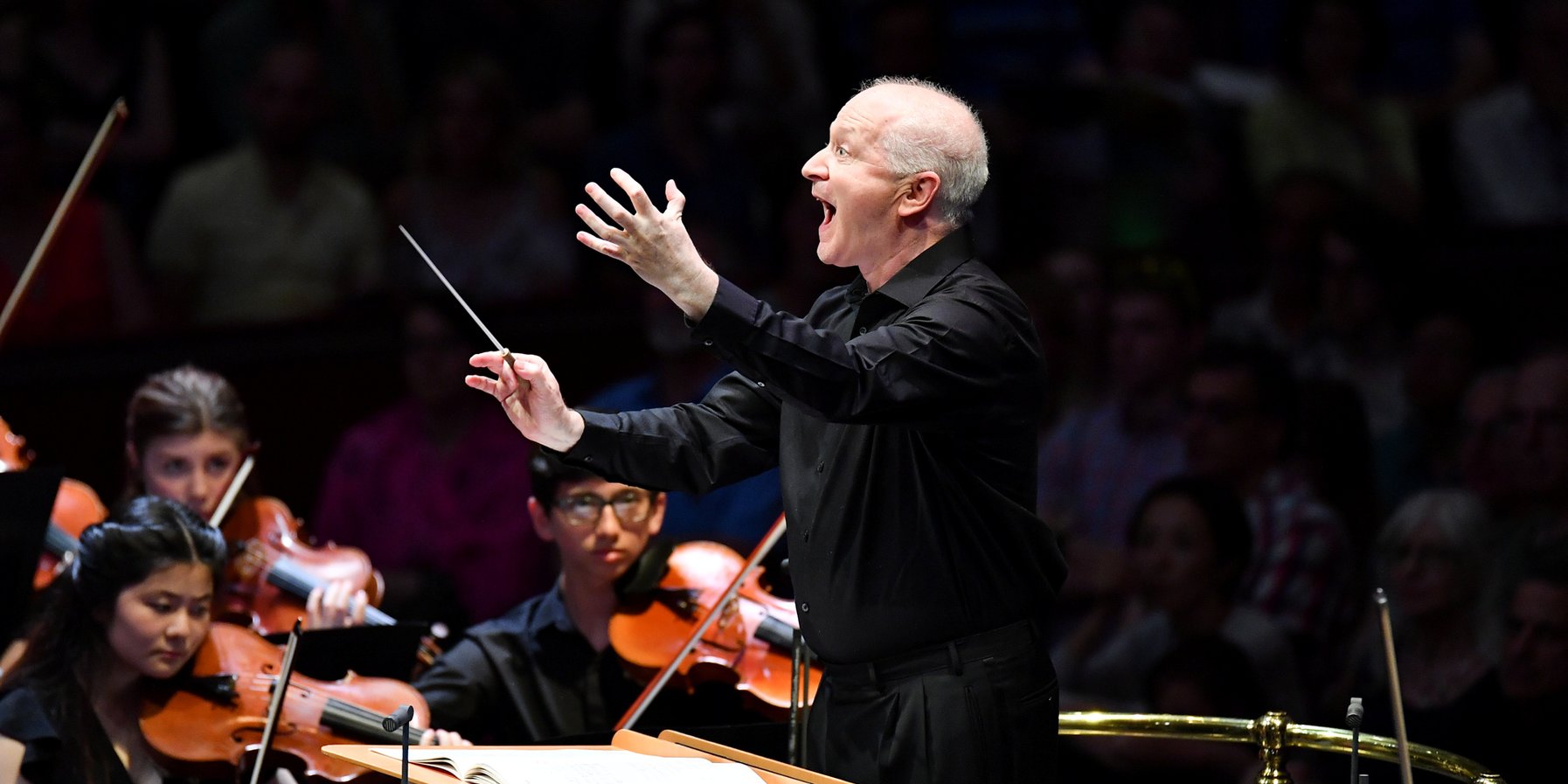Bestandsaufnahme: die britische Musikszene
It's worth taking a closer look at today's British music scene. It's not only pop music where Great Britain plays a leading role: the country boasts an abundance of outstanding classical musicians as well, and far beyond the confines of London. Nowadays, the City of Birmingham Symphony Orchestra enjoys the status of a cultural ambassador, and its presence has helped transform the metropolis in the English Midlands from an industrial centre into a flourishing city of culture. The rostrum from the CBSO has launched careers of stars like Sir Simon Rattle and Andris Nelsons, and this illustrious series continues with the orchestra's current music director, Mirga Gražinytė-Tyla, who is already counted among today's most important conductors.
Mirga Gražinytė-Tyla about the United Kingdom
And there is no lack of talent among British composers, either. Celebrated opera composer Sir George Benjamin was Artist in Residence at the Elbphilharmonie in the 2018/19 season. And in 2019, London-born composer Rebecca Saunders was awarded the Ernst von Siemens Music Prize, which is something like the Nobel Prize for music.
Land without music
This is all good news, as England long had the reputation of a »country without music«. German writer Oscar Schmitz circulated this theory in 1904 in an essay of the same name, and touched on a sore point. For it's true that after John Dowland (1563–1626) and Henry Purcell (1659–1695), who was feted under the nickname »Orpheus Britannicus«, it was solely composers from abroad that set the tone on the Thames for nearly 200 years: George Frideric Handel, Johann Christian Bach and Joseph Haydn.
John Dowland: Flow My Tears
This was not to change until the end of the 19th century. Composers like Gustav Holst and Ralph Vaughan Williams represented a new generation that wanted to usher in an »English musical renaissance«. However, this renaissance took its cue first and foremost from the German Romantics, something that came in for fierce criticism in 1919 from playwright George Bernard Shaw, winner of the Nobel Prize for Literature and also a music critic. There was only one composer to whom Shaw conceded the creation of a genuine British sound: Edward Elgar, whose »Land of Hope and Glory« remains the kingdom's unofficial national anthem.
Edward Elgar: Land of Hope and Glory
But at that time Shaw didn't know anything about the genius who had come into the world six years previously in Suffolk: Benjamin Britten. Thanks to his sensuous music, Britten remains one of the most oft-performed contemporary composers, both at home and internationally. And his contemporaries Michael Tippett and William Walton, who wrote a festive march for the coronation of King George VI, the father of today's Queen, both kept their distance from the post-war avant-garde on the Continent and cultivated a fairly modern style rooted in tradition that enjoys great popularity to this day.
Michael Tippett: A Child of Our Time
A country that produces artists of this calibre cannot be in such a bad way. The Eurovision Song Contest marked the only musical flop in recent times: at the 2019 contest, the British entry came in last.
Text: Simon Chlosta, last updated 27 September 2019
A call or a call for help?
»This is London calling.« This iconic sentence was heard at the beginning of every radio programme broadcast by the BBC World Service: a symbol of hope especially in wartime for people living amidst hostilities. Today, the big political drama is playing out in Britain itself. And as Brexit looms on the horizon, one cannot help but be reminded of punk band The Clash and its dystopian 1969 hit »London calling«, which is less a call than a call for help.








